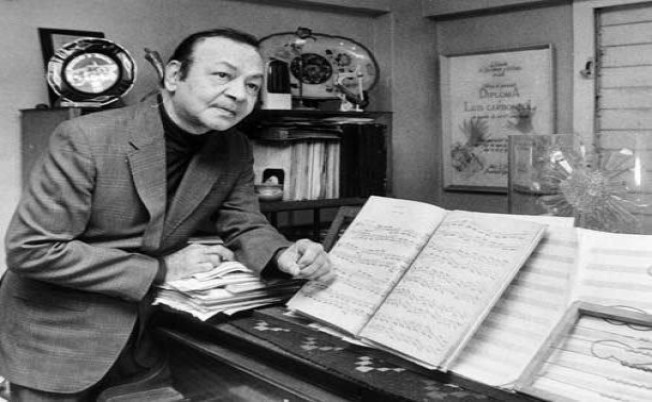«Raised in a family of musicians and reciters, with an innate sense of the stage that amplified the tenacity of the studio, Luis Carbonell was able to circumvent the pitfalls of an environment vitiated in realization and fruition. His hands acquired a new expressiveness when reciting, but also gained the resonance of the piano with an unusual lightness and skill. His keen sense of music helped his performances. He brought to his voice something of a traditional bongo player, decanted by a Creole refinement, the flexibility of the lived and the assumed. He sounded different. He was inimitable. He had a unique place that his imitators would not reach, because by imitating him without his attributes, they would impose an image of vulgarity that did not exist in him.»
This is how Reynaldo González, winner of the National Prize for Literature, described his impressions of Luis Mariano Carbonell. The references, which are also accurate, describe a peculiar figure, sui generis and original like few others in the cultural framework of the largest archipelago of the Antilles.
Born on a day like today, July 26, 1923, he was not only able to transport the listeners of his declamations to the place, time and atmosphere of each verse. This ability was combined with expressive subtlety and naturalness, as well as the use of silence and music. All this in a way that completes, but does not exhaust, the character of Luis Mariano.
The seventh child of Luis Carbonell and Amelia Pullés, he studied piano with the Catalan teacher Josefina Farré Segura and learned English. At the age of 15, he showed his talent for declamation. At that time, he won an amateur competition and became a member of the radio station CMKC.
From that time, he also declaimed the poem A la Caridad del Cobre in the church of San Francisco during a performance of the Spanish tenor Hipólito Lázaro. However, he soon reached the limits of his growth in Santiago de Cuba and went to Havana to continue his training.
In 1946 he went to New York, where he worked as a recitalist and piano accompanist. There he performed with Esther Borja and Ernesto Lecuona. Esther took him on as her protégé. Thanks to Lecuona, he gets his first professional job and meets Diosa Costello, who includes him in a show at the Hispanic Theater in 1948.
He also recites Afro-Antillean poetry at Carnegie Hall and includes a wide selection of poems by authors such as Emilio Ballagas, Nicolás Guillén, José Zacarías Tallet, Félix B. Caignet, Rafael Esténger, Vicente Gómez Kemp, Raúl Vianello, Luis Palés Matos, Manuel Rodríguez Cárdenas, Federico García Lorca and Alfonso Camín.
His talent pays off and he is interviewed on an NBC program. Upon his return to Cuba, he made his debut at the Warner Cinema (now Yara), accompanying his declamations with a careful accompaniment of musical instruments.
Later he was part of the program De fiesta con Bacardi of the CMQ Circuit. For several years he shared the stage with artists of the stature of Josephine Baker, Jorge Negrete, Pedro Vargas, Nini Marshall, Luis Sagi-Vela, Paquita Rico, Los Xey (folklore group) and Los Panchos (Mexican trio).
In October 1949, he appeared in Ernesto Lecuona’s show at the Teatro America, along with Sara Escarpanter, Olga Guillot, Orlando de la Rosa and Carlos Barnet.
He was one of the personalities with presence on television, where he appeared in the most important variety shows. His declamations, on the other hand, were accompanied by Alberto Alonso and the presence of the quartets Facundo Rivero, Orlando de la Rosa and Aida Diestro.
In the 1950s he toured Latin America with prestigious performances in Venezuela, Mexico and Spain. He later participated in the recording of Esther Borja’s canta a dos, tres y cuatro voces canciones cubanas (1955). He made the musical arrangements of the pieces, the arrangement of the voices, the piano accompaniment and the notes on the cover of the record.


Deje un comentario